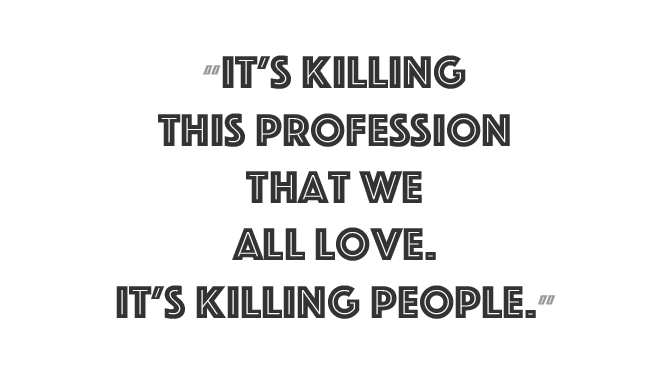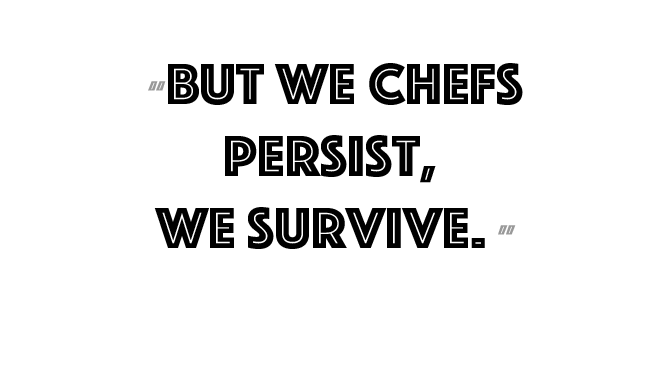I remain utterly gobsmacked that chef Rene Redzepi and his team at Noma and MAD Symposium invited me onto their stage to speak about the mental health crisis in the restaurant industry. I am more grateful than I could possibly express to them and to another of my idols, chef Jessica Largey, for opening up her heart and soul to me and allowing me to share her story with the audience there.
This is approximately what I said, and on National Depression Screening Day, I wanted to let people in the food industry know that they’re not alone.
Hi there. I’m Kat. I’m mentally ill.
That’s not usually what I lead off with, but I’m not ashamed of it—it’s just part of who I am, and it doesn’t make me feel weak to let you know that.
I also want to tell you that I love you. God, I love chefs, and people who choose to make their living in food. You feed people and take care of them. It’s the thing that consumes you and the people you choose to surround yourselves with the vast majority of the time. You wake up thinking of the food you want to serve and how you can make it better—make it perfect. How you can make your guests even happier and feel even more taken care of.
But we’re not taking care of YOU.
YOU’RE not taking care of you.
And you’re not taking care of each other—and you’re too afraid to ask.
And it’s killing you.
Continue reading MAD Symposium: What’s Killing the Restaurant Industry


